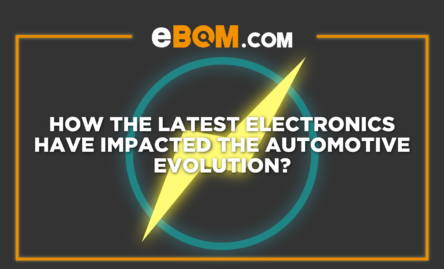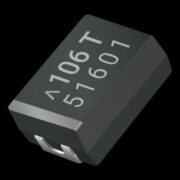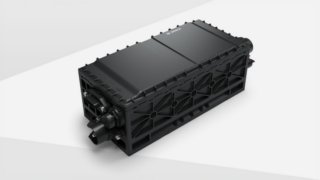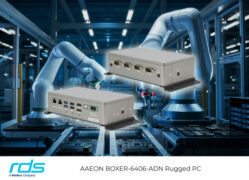The automotive industry has been thriving for many years and is one of the highest demanding markets. The automotive industry is a term that covers all aspects of motor vehicles – such as the design, development, marketing, manufacturing and selling of the vehicles itself. With thanks to the latest electronics, the automotive industry has developed leaps and bounds. Within this article, I am going to talk you through how the electronics industry has impacted the automotive revolution.
On July 3rd, 1886, Karl Benz invented the very first petrol powered car which reached a top speed of 10mph. He was granted a patent for this first automobile which was a huge milestone for the industry. The car Benz created had three wheels, no windows nor roof – so it wasn’t ideal in bad weather! Fast forward a few years, four-wheeled gas-powered cars were introduced in 1891. This invention was the start of the automotive revolution.
What has the latest electronics got to do with automotive?
In todays world, vehicles are equipped with handy technical add-ons such as parking sensors, drive assist, display screens and climate control. The first motion sensor was invented by Samuel Bagno in the 1950s. Thanks to years of electronic components evolving and becoming more technical, so has the automotive industry. The first car sensor was invented in the late 1970s by Tony Heyes. However, originally, they were meant to be used in guidance devices for the blind. This was a huge milestone for the automotive evolution as many people began to rely on car sensors to park and avoid contacting objects in a blind spot. It wasn’t until the early 2000s when the parking sensors really took off. The first mainstream car to feature them was the Toyota Prius, in 2003. Car sensors use ultrasonic technology to detect the distance between objects and the car itself. If an object is near the car, the sensor detects this, and the driver is warned via a beeping noise. Nowadays, most cars are sold with parking sensors as people have adapted to them.
Electronics have evolved and impacted the automotive sector so much that there are talks of autonomous vehicles. Tesla has already introduced an autopilot feature which can drive and park the car with no interaction from the driver. Many big manufactures such as Volvo and Ford has announced plans in 2021 to have fully autonomous vehicles. If it wasn’t for the latest electronics, then the automotive industry wouldn’t be near where it is today. One example of how the latest electronics have influenced the automotive industry would be Samsung’s newest semiconductors and sensors displayed in Renault Samsung Motors. Samsung partnered with Renault back in the ’90s to produce a range of mostly badge-engineered cars in its home country. The XM3 Inspire is essentially the same vehicle as the Renault asides from the Renault Samsung badging.
Without us really knowing, electronics are slowly taking over the automotive industry. So much that electric cars are becoming more appealing than a fuel car due to less emissions and less upkeep costs. The leading electric car is the Tesla Model 3, which according to Parkers’ new miles-per-pound metric, the entry-level Model 3 will travel 32 miles for every £1 of electricity – three times as far as a petrol or diesel equivalent. Thanks to the latest intelligence of electronics, we are all starting to depend on electronics in industries such as automotive as it in environmentally friendly and will cost less in the long run.
Summary
Overall, the automotive revolution has expanded massively within the last 100 years. In the early days of the automotive evolution, vehicles were manufactured providing the bare minimum to customers as electronics were not up to the high standard they are today. People were so blown away by the idea of cars that they were not fussed about the electronic add-ons and luxuries of heated seats, parking sensors, display screens etc. Nowadays people take electronic luxuries within the automotive industry for granted as many people have adapted to the advanced technology. The latest electronics have hugely impacted the automotive industry as it makes up most handy gadgets and systems within the vehicles. The advanced electronics which contributes to the automotive industry hugely impact the leisure feel of the vehicles and overall experience. In my opinion, the automotive industry will become more electronic based and technical in ways which are benefits to the environment.
By Amy Leary, Marketing Manager at eBOM.com
https://www.ebom.com/category/new-components/










